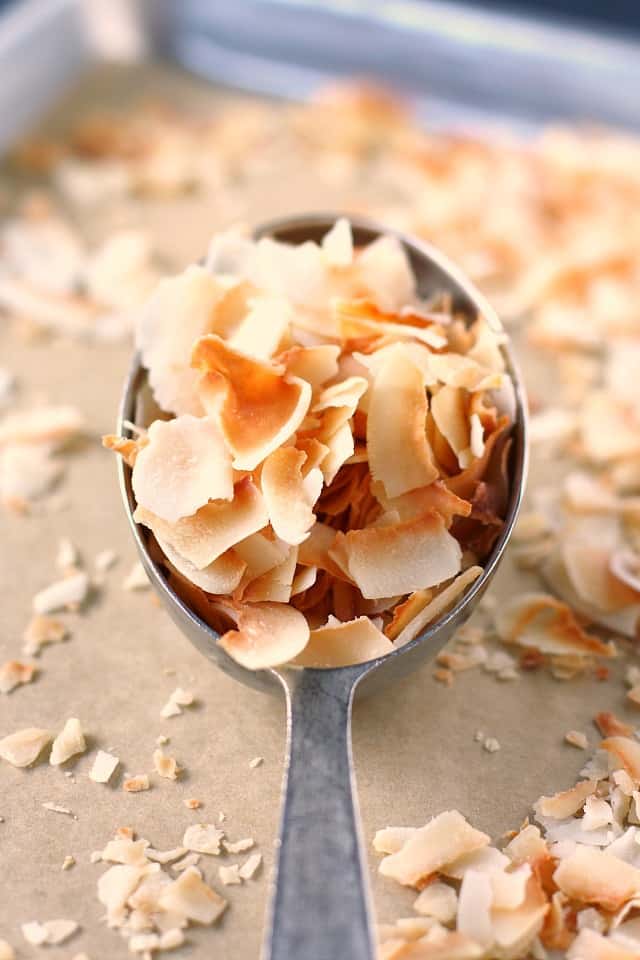
Coconut Flakes, Toasted Spice Mountain
Generally, shredded coconut stored at room temperature will last for 4-6 months, as long as it hasn't been opened. Once you've opened your shredded coconut, it will go bad much more quickly if stored in your pantry. Some people prefer to keep it in the pantry or on the counter where they can see it.

Do Coconut Flakes Go Bad? A Comprehensive Guide to Ensuring Freshness
The best way to store coconut flakes is in a sealed container at room temperature. Make sure there's no moisture or air able to get into the container. Otherwise, your coconut flakes can become stale, dry out, or go kind of bendy and too chewy instead of a little crispy. You can also place them in an airtight bag and keep them in the.

Heap of fresh coconut flakes isolated on white Stock Photo Download
Coconut flakes can be stored in a pantry, refrigerator, or freezer. The pantry is the best place to store coconut flakes if you plan to use them within a few months. Keep the flakes in an airtight container to prevent them from becoming stale.. Yes, flaked coconut can go bad if not stored properly. If it is stored in a sealed container in a.
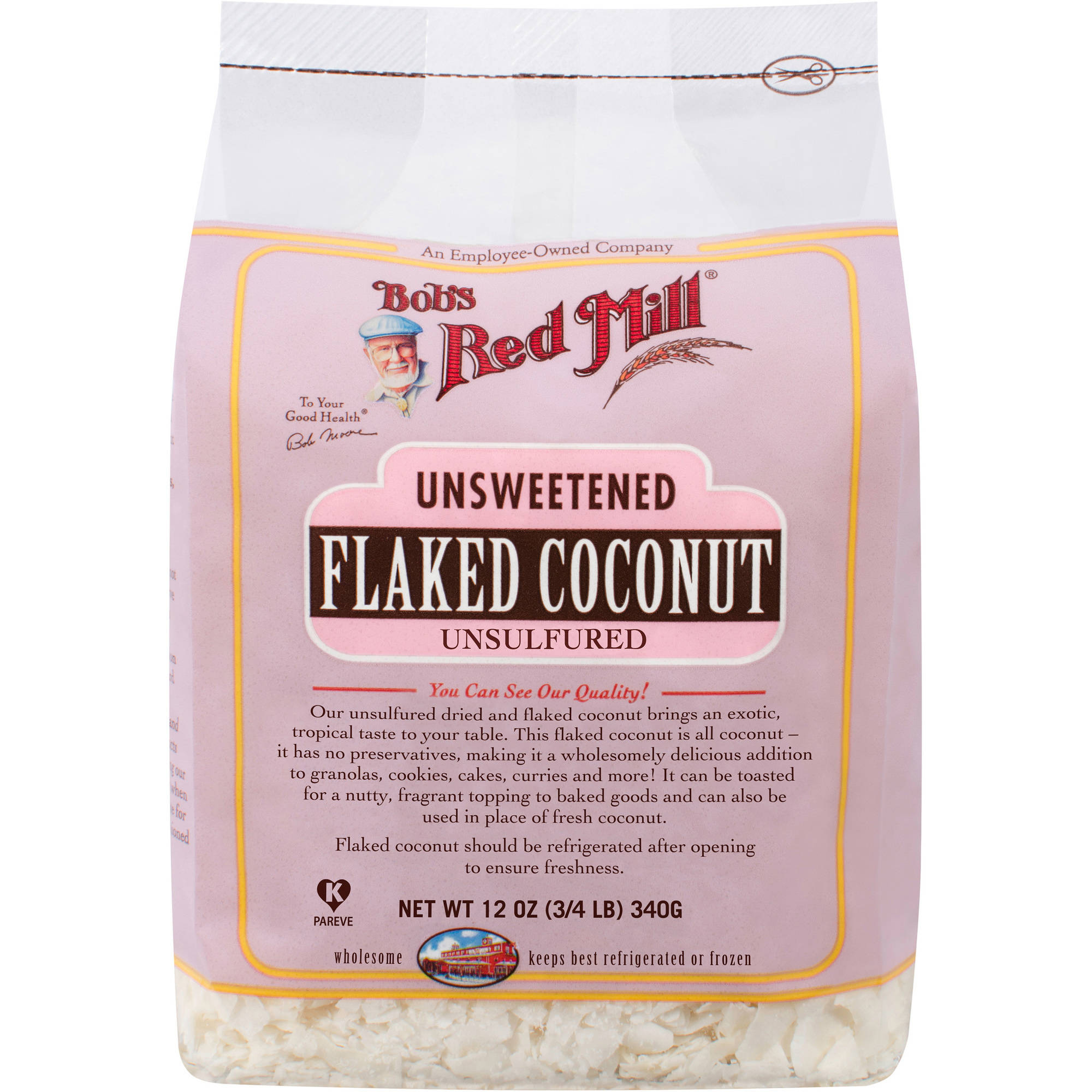
Great Value Sweetened Coconut Flakes, 7 oz
1. Can coconut flakes go bad? Yes, coconut flakes can go bad if not stored properly or if they are past their expiration date. Exposure to air, moisture, and heat can cause coconut flakes to spoil. 2. How do I know if my coconut flakes have gone bad? Signs that coconut flakes have gone bad include a rancid smell, off-flavor, or a change in texture.

Delicious Moist Flakes Coconut McKenzie’s Foods
The simple answer is yes, coconut flakes do expire. However, the shelf life of coconut flakes can vary depending on how they are stored and whether or not they have been opened. When stored in a cool, dry place in an airtight container, unopened coconut flakes can last for up to six months past their expiration date.
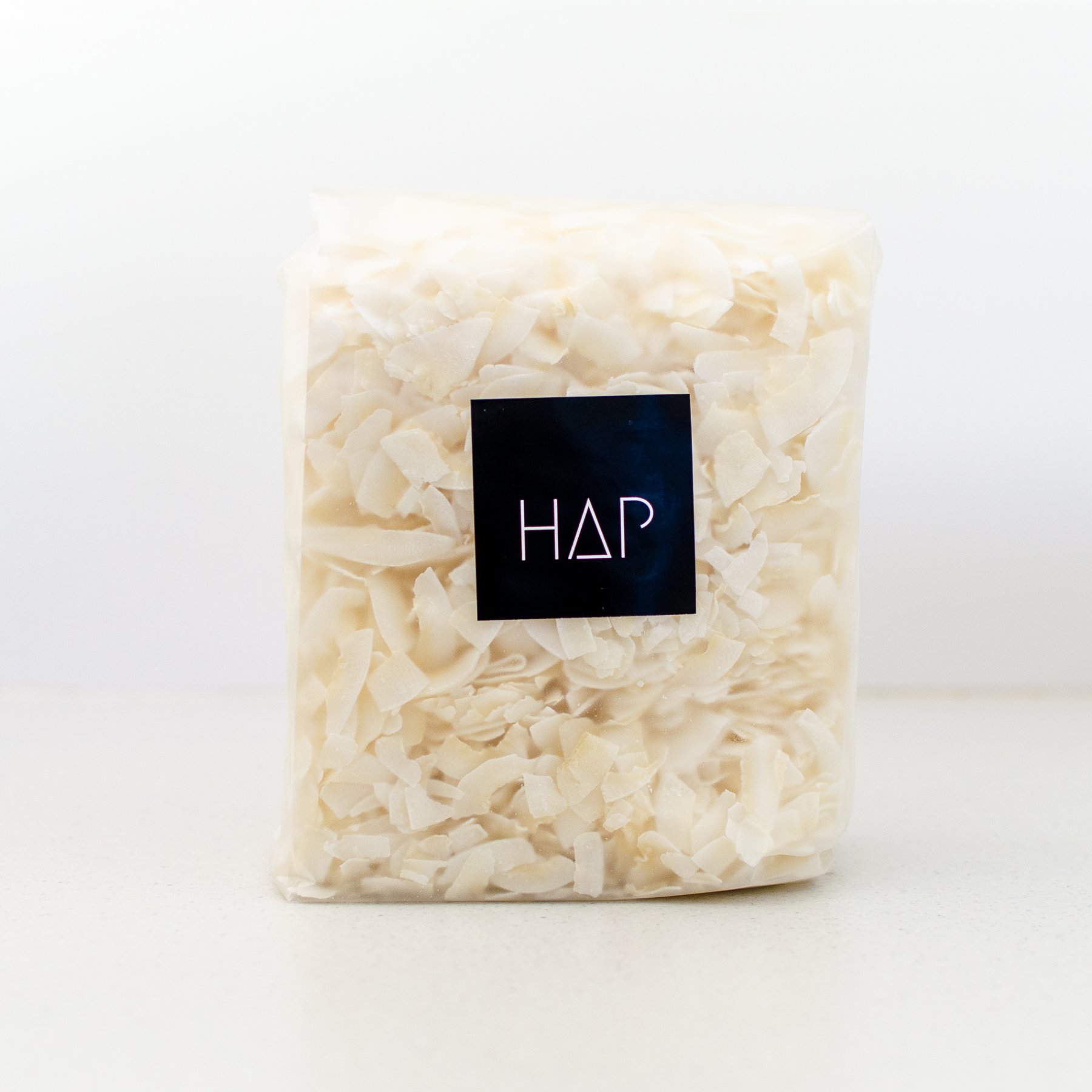
HAP Coconut Flakes 400g HAP
Required fields are marked. Yes, coconut flakes can go bad. Unopened, they last 6-12 months in a cool, dry place, but only 3-4 months in the fridge once opened. Signs of spoilage include bad smell, discoloration, or clumping.

Cocoa Coconut Flakes Buy Online in South Africa Cecilia's Farm
Once opened, coconut flakes can last up to 6 months if stored properly in an airtight container in the refrigerator. However, exposure to moisture or humidity can cause the flakes to spoil more quickly. To ensure your coconut flakes stay as fresh as possible, store them in the refrigerator or freezer for extended shelf life.

Buy Shredded Coconut Unsweetened, 1 lb. Unsweetened Coconut Flakes
Coconut flakes are a popular ingredient used in many recipes, but like all food products, they do have a shelf life. The question of whether coconut flakes can go bad is a common one, and the answer is yes, they can. However, the shelf life of coconut flakes can be extended with proper storage and handling. When it comes to coconut flakes, the.

Best natural and vegan coconut products in kerala The Coco Factory
Ensure that the containers are clean and dry before adding the flakes. Seal the containers tightly: Make sure to seal the containers tightly to prevent any air or moisture from entering. This will help maintain the quality and freshness of the coconut flakes for a longer period. Store in a cool, dry place: Find a cool and dry spot in your.

Does Coconut Rum Go Bad? And How To Tell If It Did! UpThirst
The short answer is yes, it can go bad if not stored properly. When exposed to air and moisture, flaked coconut can become rancid and lose its flavor and aroma. It is important to store flaked coconut in an airtight container in a cool, dry place to prevent it from spoiling. Additionally, keeping it away from direct sunlight can help extend its.
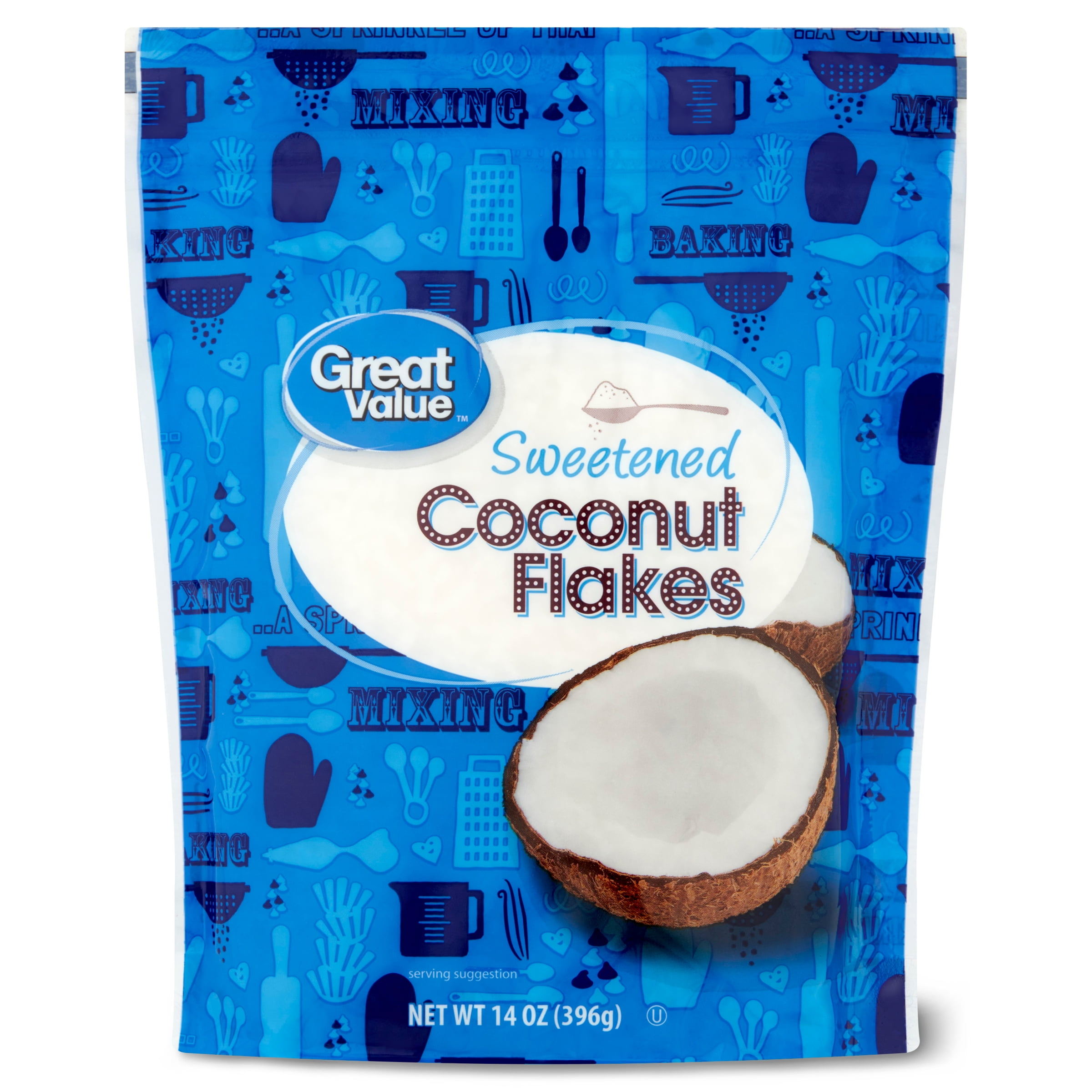
Coconut Flakes ubicaciondepersonas.cdmx.gob.mx
Conclusion. In conclusion, shredded coconut can last up to six months if stored properly. Keep it in an airtight container in a cool, dry place away from sunlight. You can also freeze it for up to a year. If the coconut has any visible mold or changes in color, it has gone bad and should be thrown out.

3 RECIPES TO MAKE THE MOST OUT OF COCONUT FLAKES SPUD.ca
Shredded coconut shelf life and storage: Stored at average temperature — about 70 degrees Fahrenheit — a package of shredded coconut can last between four and six months. If you want to keep it longer, especially if it's been opened, keep it in the refrigerator in an airtight container. If you do so, it has a shelf life of six to eight.

How To Make Coconut Flakes Coconut Shavings YouTube
Fresh coconut flakes, often moist and tender, have a shorter shelf life due to their higher moisture content, which makes them more susceptible to mold and bacterial growth. It is advisable to consume fresh coconut flakes within a week when stored in a refrigerator. On the other hand, dried coconut flakes are more shelf-stable. When placed in.
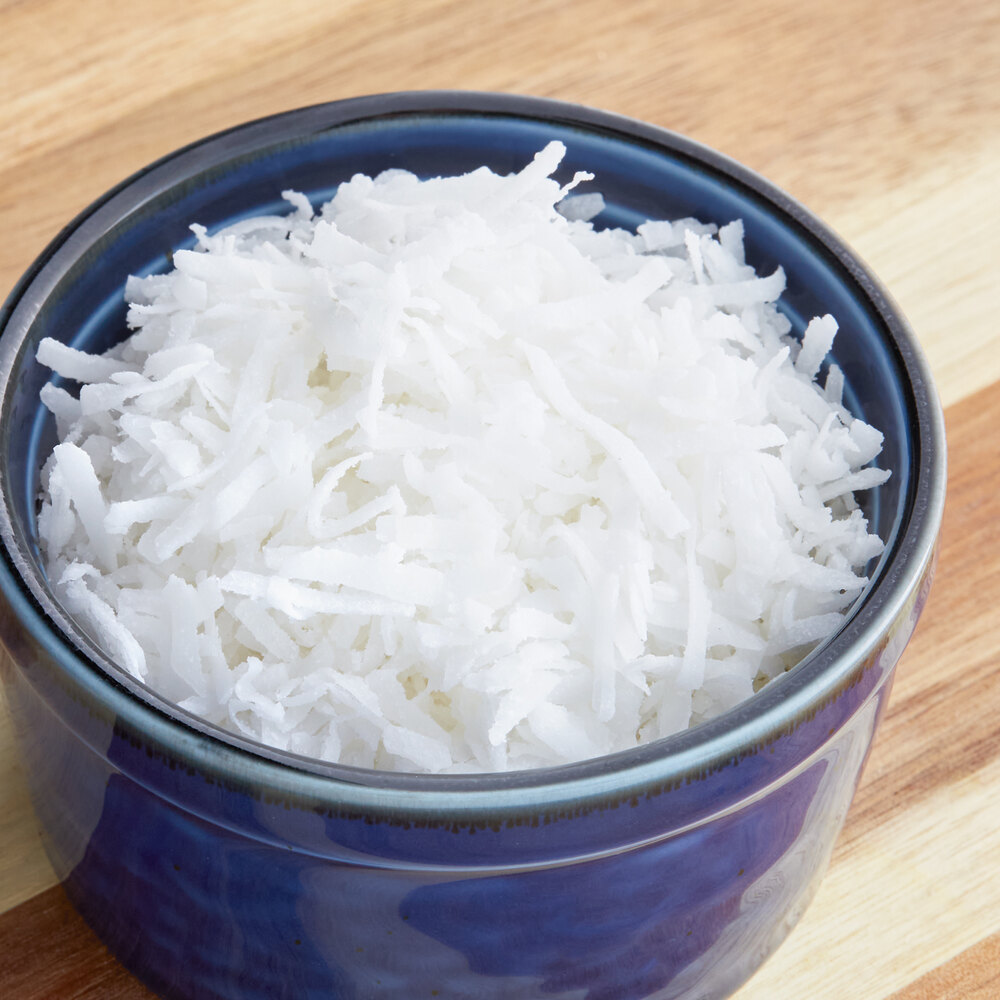
Sweetened Coconut Flakes 14 oz. 24/Case
Yes, sweetened coconut flakes can go bad. The lifespan of sweetened coconut flakes will depend on a variety of factors, including the packaging, the expiration date, and the climate. If stored in a sealed container in a cool, dry place, sweetened coconut flakes will likely last for several months. However, if the flakes are exposed to humidity.

Does Coconut Go Bad?How Long Does It Last?
Shredded coconut dries out the older it gets, and when it has finally gone bad, it will be brittle with a yellow tinge to its color. A package of shredded coconut lasts significantly longer than fresh coconut, but it doesn't last forever. You can extend its shelf life by refrigerating it, but even then, it will eventually go bad. If you aren't.

Can Coconut Milk Go Bad? Does Coconut Milk Go Bad In The Fridge
Textural Changes. Coconut meat has a pleasantly chewy and delicious mouthfeel but if you notice any change in texture then this could mean that the coconut has gone bad. Slime, mushy bits, or other textural changes are usually caused by bacteria or mold. Another thing to look out for is dryness.